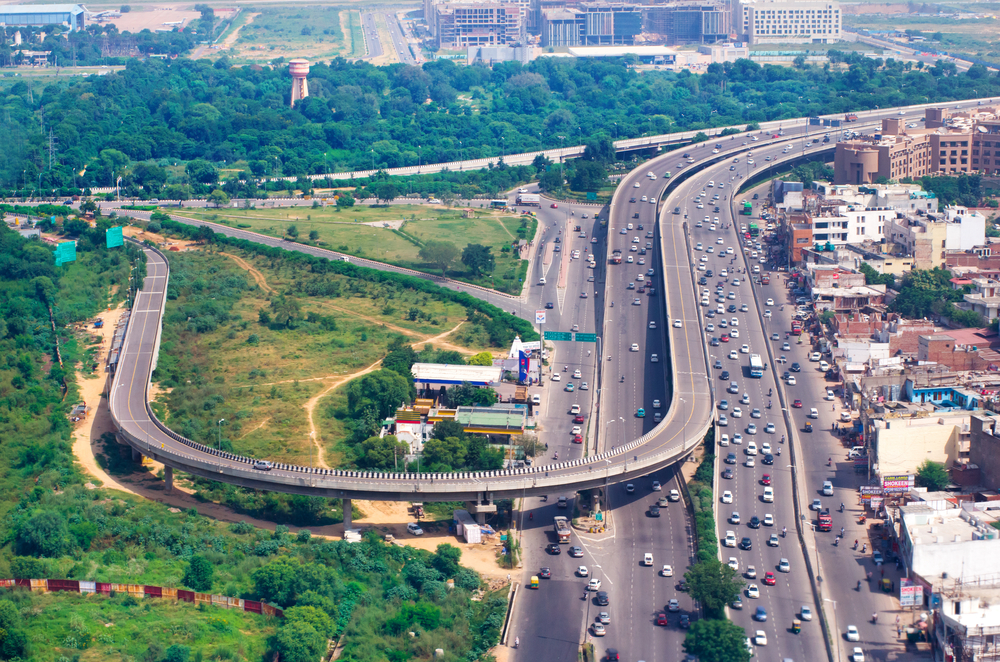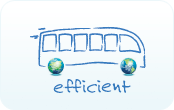|
Home  News News
Smarter mobility for India by 2030
|
The Mobility 2030: A Global Vision workshop held in New Delhi today provides a platform to establish a comprehensive vision for sustainable global mobility, following on from the work of the All India Smart Move High Level Group, with its concluding meetings held yesterday.
|
|
Moderated by Mary Crass, from the International Transport Forum (ITF), the workshop will contribute to achieving the UN Sustainable Development Goals 2030 and implementing the UN’s New Urban Agenda. Addressing the challenge of rising congestion and pollution, particularly in urban areas, the vision for a sustainable transport ecosystem, places collective passenger transport at its core.
“Making transport work better for communities in India and globally is a priority. Today’s workshop puts the focus on collective passenger services as the key to sustainable mobility. It is a review of trends, new transport technologies and also the issue of mindset – how to ensure that people around the world will leave their cars behind if they have access to bus and coach or taxi services that are affordable, safe and efficient.” said Mary Crass, Head of Institutional Relations and Summit.
Presenting and debating the preliminary findings of the Smart Move initiative, the workshop focuses on the main identified trends affecting mobility in general and buses and taxis in particular, as well as future scenarios for the expected development of the bus and taxi markets.
|
 |
Collective short and long-distance passenger transport – by bus, coach and taxi – is the most dynamic and customer responsive part of the door-to-door mobility chain. It is the backbone of efficient public mobility and an optimal, efficient and sustainable alternative to the use of private cars, coupled with a unique door-to-door customised service. These transport modes are therefore uniquely placed to substantially contribute to achieving ambitious objectives for sustainable mobility.
IRU is leading the initiative looking into the role and place of passenger transport, with involvement from the private sector seen as paramount to meeting these challenges and realising the objectives set at the global level.
Umberto de Pretto, Secretary General of IRU said,
“The conclusions of the All India Smart Move High Level Group, which were adopted yesterday, and the results of today's future-looking workshop are key contributions to achieving sustainable mobility for all in India. IRU is ready and willing to further support and sustain, also in the future, this extremely efficient public-private discussion platform, and to integrate the innovative contributions from Indian mobility stakeholders into its global Vision 2030 for buses and coaches, as well as into its Taxi of the Future vision."
The high level public-private group of Indian and international transport stakeholders was launched in New Delhi in 2015 and has worked to substantially increase the number of users of collective passenger transport modes by 2030.
The day-long workshop focuses on three broad areas that include: vision 2030 for buses and coaches, addressing the urban as well as intercity dimension; the growing role of taxis as part of the intermediate public transport of the future – with a presentation of work undertaken by IRU’s Taxi of the Future initiative; and the broader issue of mobility in the Indian context.
Oleg Kamberski, Head of Passenger Transport, said,
“In India, transport emissions are key contributors to climate change and urban air pollution, with high rates of fatalities and injuries. The challenge is to develop a transport system that is efficient and reliable, and at the same time affordable and accessible to all. By building a successful model in this context, there is the opportunity to establish a compelling universal approach that has a global resonance.”
Sustainable mobility provides sustainable transport solutions to mobility needs through the introduction of transport systems that focus on access, safety and efficiency within the larger context of reducing the need to travel in urban areas.
IRU’s efforts through its various initiatives, including the Smart Move Campaign, are making an important contribution towards a smarter and a more sustainable mobility. IRU’s Global Partnership for Sustainable Transport has also contributed towards mobilising governments, the private sector and global transport stakeholders to accelerate progress on the sustainable transport agenda and the adoption of United Nations General Assembly resolutions on sustainable transport.
|












